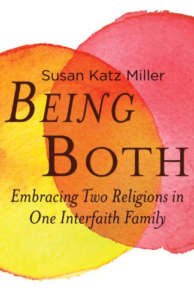 As the holidays set in, you may find yourself invited to participate in the holidays of a faith or tradition not your own, or a combination of yours and another’s. Celebrating interfaith holidays doesn’t have to be intimidating, but rather, it can be an opportunity for learning, making new connections, and sharing in the true meaning of the holidays. Here are some tips on how to enjoy a celebration that’s new to you:
As the holidays set in, you may find yourself invited to participate in the holidays of a faith or tradition not your own, or a combination of yours and another’s. Celebrating interfaith holidays doesn’t have to be intimidating, but rather, it can be an opportunity for learning, making new connections, and sharing in the true meaning of the holidays. Here are some tips on how to enjoy a celebration that’s new to you:
Let love lead
Perhaps the most important way to approach any holiday is to remember the deeper meaning of the holidays, says Stephanie Adams-Nicolai, founder of Goddessy. “I always advise families of various religious beliefs to encompass the true meaning of the holidays—love, family, peace, happiness,” she tells Rewire Me. “Attending a Christmas party even though you are Jewish, or dining at a Diwali celebration even though you are a practicing Buddhist does not mean you are changing faith, but instead showing good faith for your significant others as well as humanity.”
Take cues from the kitchen
If you’re nervous about the details of a religious party ceremony that you have little experience with, consider the great leveler: food. “We are big believers in blending traditions in the kitchen,” says Ellen Zimmerman, founder of Jewish Holidays in a Box. She likes to invite others to make sugar cookies using, say, Hanukkah and Christmas-shaped cookie cutters, or whatever symbols best represent your faith. “Working side by side in the kitchen is a lovely way to bridge gaps and spread understanding.”
Be open-minded
It’s easy to make assumptions about things that are foreign to you, but traditions and religious events can be powerfully charged, emotional moments at which time it’s best to leave judgments aside. Jessica Glassberg, a Los Angeles-based writer who enjoys celebrating both Jewish and Christian holidays with her family, suggests, “If you’re attending a holiday not of your own faith, be prepared to go a bit out of your comfort zone.” This may mean you put aside your own needs or expectations temporarily to experience new ones.
Lux Alptraum, a New York-based freelance writer, was raised Reconstructionist (liberal) Jewish, but her mother’s family is Catholic. She has struggled with the pressure to celebrate Christian holidays. However, she says; if you find yourself in this situation, “Be open-minded and ask questions, and be willing to learn about the ways that different cultures view the world—ways that might be very different from the culture you were raised in.”
Expand your cultural literacy
 Learning about the traditions of another religion or culture may actually expand your empathy and certainly your cultural literacy. Susan Katz Miller, author of Being Both: Embracing Two Religions in One Interfaith Family, says, “My husband and I find celebrating two sets of holidays fulfilling, and we think it creates a strong pattern of spending time together as a family, thinking deeply about big questions and honoring both family heritages.” She feels that more Americans could use a dose of this.
Learning about the traditions of another religion or culture may actually expand your empathy and certainly your cultural literacy. Susan Katz Miller, author of Being Both: Embracing Two Religions in One Interfaith Family, says, “My husband and I find celebrating two sets of holidays fulfilling, and we think it creates a strong pattern of spending time together as a family, thinking deeply about big questions and honoring both family heritages.” She feels that more Americans could use a dose of this.
Hilary Sang is a California dyslexia specialist, raised without religion. She and her husband celebrate some of both Christian and Jewish holidays in their own non-religious way. Their Passover Seder is a big hit among their four children. “Our Haggadah is for Jews and Buddhists,” she says with a laugh. Though she admits to some fatigue with the overpowering nature of Christmas season. “With Christmas it’s a fight to get poor Hanukkah out there, but Easter takes a backseat to Passover,” she says.
Overlap or make new traditions
There are many ways to overlap traditions—have a potluck with multiple foods; exchange gifts on more than one holiday; sing the songs of more than one tradition. Glassberg and her husband decorate their Christmas tree with traditional ornaments as well as Hanukkah decorations, like a dreidel garland and menorah ornaments. “Before we got married, we had a ‘Christmakah’ party with latkes and German sausages, pretzels and beer,” Glassberg says. She fasts for Yom Kippur, and he goes to church on his own for Ash Wednesday.
 Be respectful
Be respectful
Glassberg also emphasizes the importance of handling another faith’s traditions delicately. “These are usually things that have been passed down for generations and that people hold dear to their heart. Do not be dismissive.”
Toni Coleman, a DC psychotherapist, and a Catholic with a Jewish spouse, echoes the importance of respect. “I think what is key is that we both respect and value the other’s traditions and we both have a strong belief in God, it’s just that we were raised to call him by different names.”
Whether you dip a toe in a new tradition, combine traditions, or wholeheartedly celebrate a friend or partner’s, interfaith celebrations can be another way to spread joy in the holiday season.
To find out about Rose’s thoughts on how to live a happier life, click here


